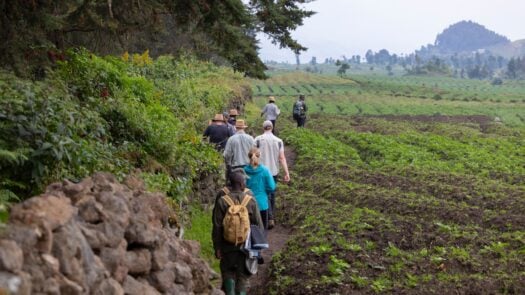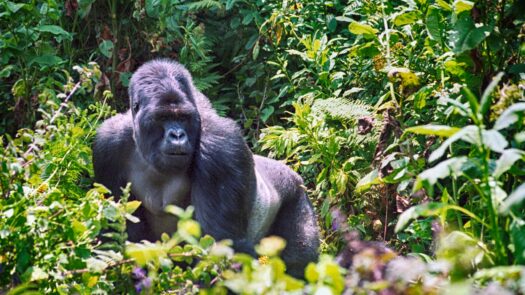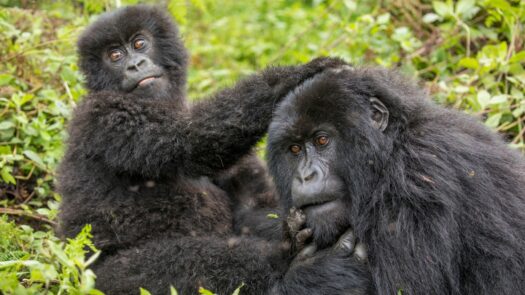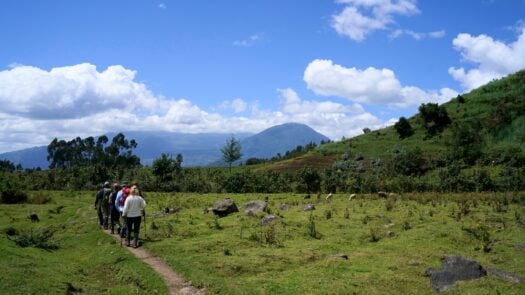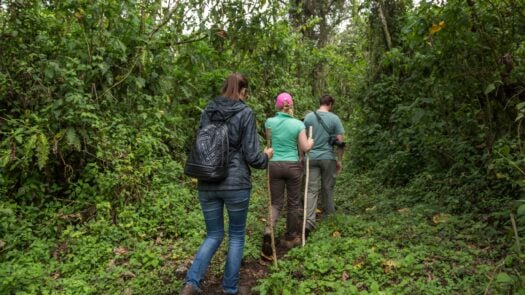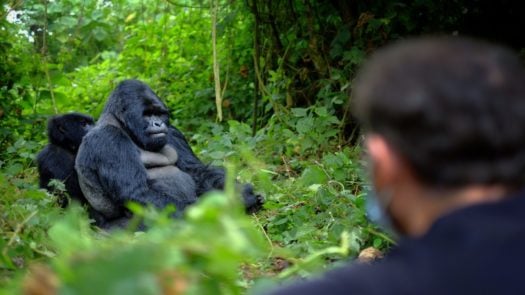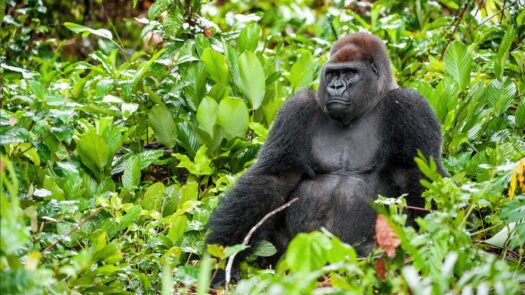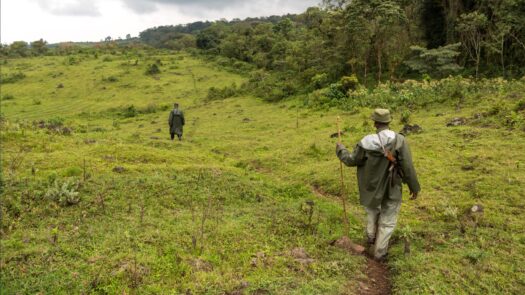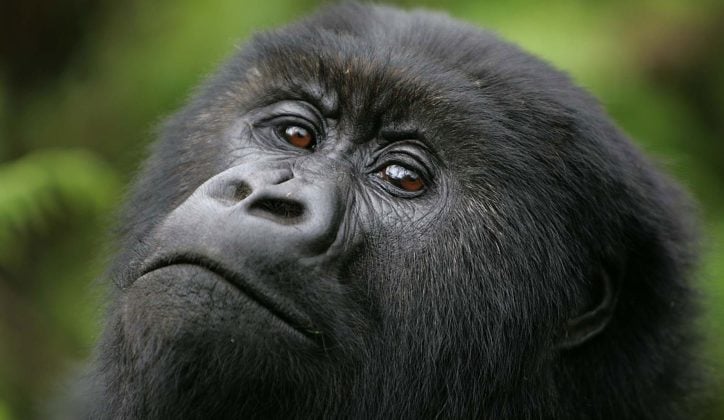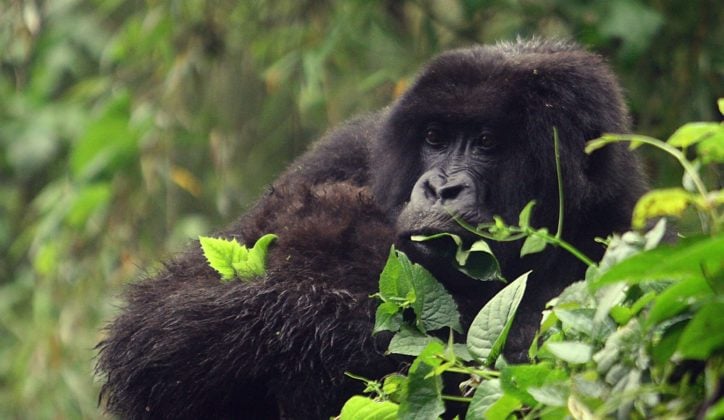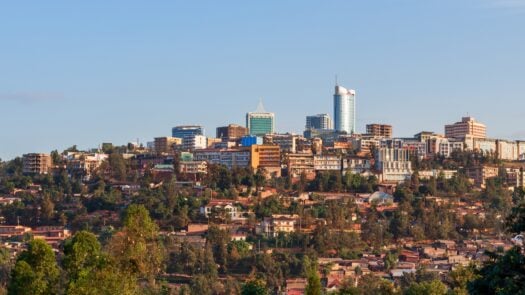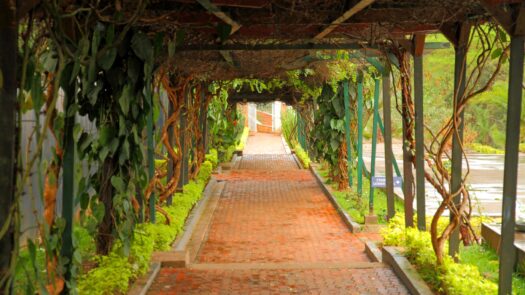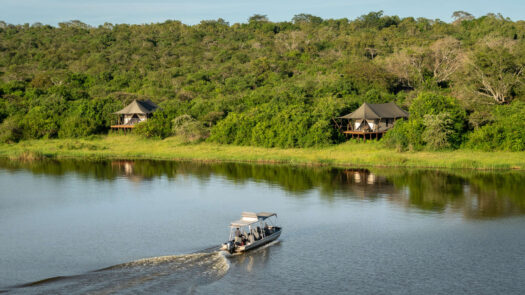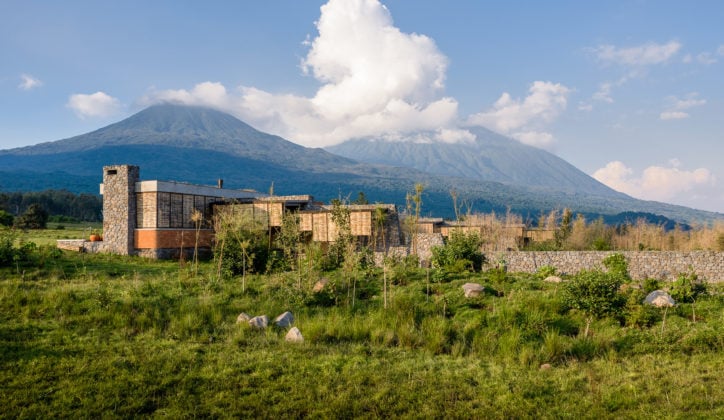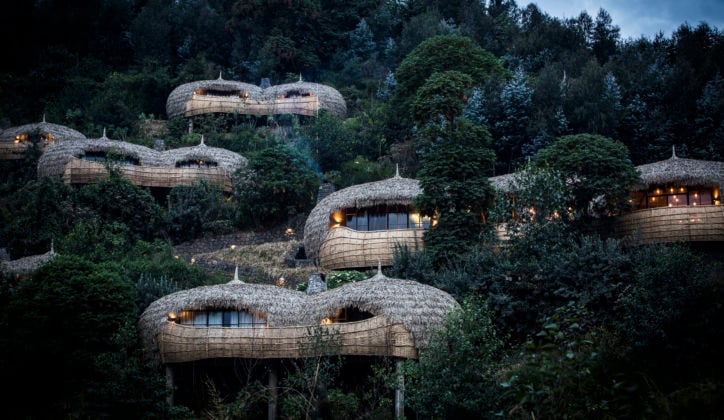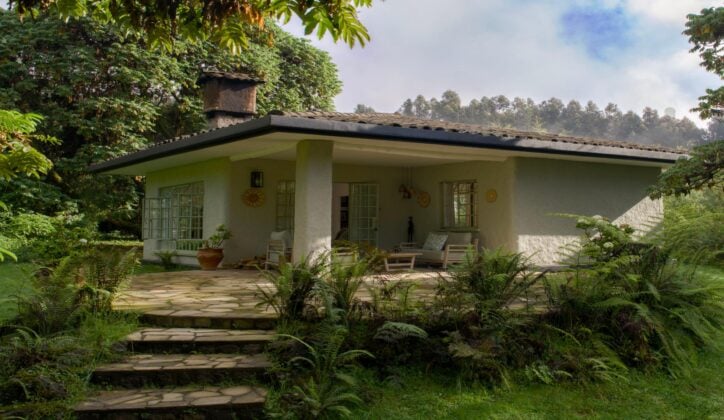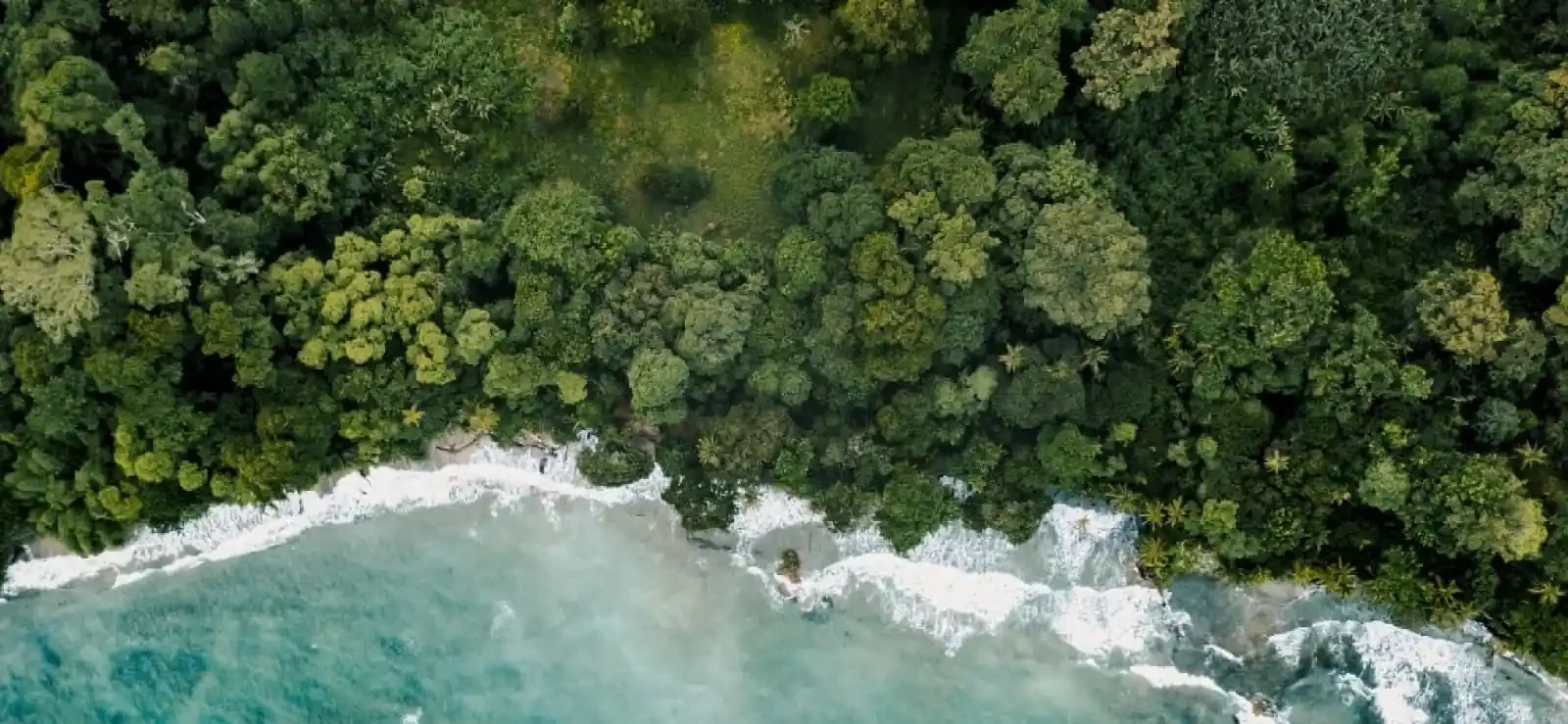Published on: December 4th, 2020
Last updated: June 4th, 2024
Some 13 million years have passed since our common ancestors roamed the forests of Africa. But when you find yourself among a family of mountain gorillas in Volcanoes National Park, Rwanda, time simply fades away. Their eyes resemble ours, as do their fingers. Their facial expressions and body language seem uncannily familiar. It’s this powerful feeling of kinship, and the thrill of entering their misty, leafy world on foot, just for an hour, that make a gorilla trekking experience absolutely unforgettable.
In recent years, Rwanda’s status as a wildlife-watching destination has grown from strength to strength. With diverse habitats ranging from forests and lakes to biodiversity-rich grasslands, this tiny East African country exceeds expectations.
While its mountain gorillas are the main draw for travellers, what makes Rwanda particularly special is its commitment to conservation. The country invests in reforestation, research and wildlife vet services, and fosters nationwide environmental action through its single-use plastic ban and its umuganda scheme, which requires Rwandans to devote three hours on the last Saturday of the month to community work, keeping the streets immaculate. Importantly, Rwanda also ensures that rural communities benefit directly from positive impact travel.
Gorilla Trekking in Volcanoes National Park
Mountain gorillas are found in just a few pockets of highland rainforest. By far the most popular places to track them are Rwanda’s Volcanoes National Park and Uganda’s Bwindi Impenetrable National Park.
No two treks are alike, since much depends on where the gorillas you’re tracking have moved to that day, and the parks differ in climate and terrain. In both, footpaths are limited, the going can be steep and rain can fall at any time. However, while Bwindi tends to be stickily tropical and dense with tangled vegetation, Volcanoes National Park is usually a few degrees cooler, with more open areas, making hiking and wildlife-watching a little easier.
Located in Rwanda’s mountainous northwest, Volcanoes National Park shares an inseparable bond with the renowned American primatologist Dian Fossey and her dedicated team of rangers. It’s home to fewer gorilla families than Bwindi, with the number fluctuating when groups split or merge. For now, ten families have been habituated to tourism, a gentle process that takes several years; it’s only once the park rangers have gained their trust that visitors can approach at an appropriate distance.
Led by a dominant male, each family includes a mixture of subordinate silverbacks (mature males), blackbacks (younger males), females and infants, typically 10 to 20 in number. The largest group, Susa, is currently 38-strong.
While you won’t normally meet conservationists on your trek, you can contribute to the Dian Fossey Gorilla Fund, which works shoulder to shoulder with Gorilla Doctors, a team of wildlife vets who treat ill and injured gorillas when needed.
Planning Your Rwanda Gorilla Trekking Adventure
Everyone wishing to track mountain gorillas in Rwanda must obtain a date-specific tourist permit from the Rwanda Development Board. The cost for foreign visitors is US$1500, and the age limit is 15 years. Since there are currently ten gorilla families that can be visited, Rwanda issues no more than 96 permits per day. Jacada will arrange these on your behalf while planning your trip.
While it’s possible to track mountain gorillas in Rwanda at any time of year, dry weather brings easier hiking conditions. Rwanda has two dry seasons, June to September and mid December to early February. Since some gorilla families live in areas that are easier to reach than others – and since youngsters are particularly fun to watch – it’s possible to request a specific group, although success isn’t guaranteed.
The Gorilla Trekking Experience
It’s easy to get caught up in the moment on a gorilla safari, but since gorillas are susceptible to stress and human illnesses, it’s crucial to follow a few points of etiquette.
Your experience begins with an informative briefing by your seasoned guide, ensuring your safety and imparting valuable insights into the mesmerising world of gorillas. Prior to the briefing, you will be asked to choose between the easy, medium, or hard trekking routes and decide if you’d like a porter to accompany you on the hike.
You won’t be allowed to trek if you have a cold or any other contagious illness. During your hour-long encounter, wearing surgical face masks is compulsory; if you need to cough, turn away from the gorillas. Throughout, keep your voice low and avoid sudden, rapid movements.
Tempting though it may be to get close, try to stay between seven to ten metres away at all times. If a gorilla approaches, follow your guide’s directions, which will normally be to stay still, avoid eye contact, and let them pass. If they sit near you, gently back away to resume your seven-metre distance.
While your trek won’t necessarily be long and arduous, physical fitness will enhance your enjoyment, and good footwear and clothing that protects your legs and arms from nettles are essential. The gorillas live at high altitudes (2,500–4,000m), so pace yourself and keep hydrated. It’s also wise (and community-friendly) to hire a porter to help carry your kit and haul you up the trickiest slopes. Many of them are former poachers.
The Gorilla Naming Ceremony (Kwita Izina)
Mountain gorillas are a conservation success story. Though endangered and naturally slow-breeding, they’re the only great apes whose numbers are steadily increasing. To celebrate this, and to engage the local and international community in their conservation, Rwanda organises an annual ceremony, Kwita Izina, at which the previous year’s newborns are given a name. It’s a festive event, held at an open-air showground near Volcanoes National Park. Visitors are welcome, and high profile invitees – from activists and entrepreneurs to footballers – are invited to godparent each infant, amid a rousing programme of speeches, traditional music and dance. The gorillas themselves aren’t present, of course, but their habitat looms large in the background.
Our Team's Favourite Gorilla Trekking Trips in Rwanda
Exploring Rwanda Beyond Gorilla Trekking
Kigali, the capital city, has undergone significant transformation over the years. Before, it was a city marked by the wounds of the 1994 genocide that devastated the country. The aftermath left Kigali, like the rest of Rwanda, in a state of recovery and rebuilding. In recent years, however, Kigali has become a symbol of resilience and progress.
Today, the mood in Kigali is progressive and forward-thinking: it’s a clean and vibrant city with an international community and a flourishing creative scene. Museums like the Kigali Genocide Memorial offer a poignant journey through the country’s tumultuous history, providing a deep understanding of the genocide against the Tutsi. Places like the Murambi Genocide Memorial, with its preserved remains and exhibits, serve as educational hubs, fostering a collective remembrance and an unwavering hope for a harmonious future. Visitors can also explore historic houses that have been preserved to reflect the country’s cultural heritage, showcasing traditional architecture and lifestyle.
For wildlife enthusiasts, there’s much to enjoy up-country. As well as mountain gorillas, Rwanda protects other primates: in Volcanoes you may see golden monkeys, sociable monkeys that navigate the treetops with great agility, and in Nyungwe Forest you can track wild chimpanzees. In the east, you can enjoy a traditional East African safari, complete with big cat sightings: thanks to an ambitious rewilding programme, Akagera National Park, Rwanda’s only Big Five destination, is a wilderness rich in lions, zebras and giraffes, with Wilderness Magashi Camp situated in a private concession serves as a supremely comfortable base.
Where to Stay in Rwanda
Your Gorilla Trekking Adventure
Embark on an unforgettable journey through the highland rainforest of the Volcanoes National Park. Witness Rwanda's mountain gorilla families on a tailor-made trip of a lifetime.



